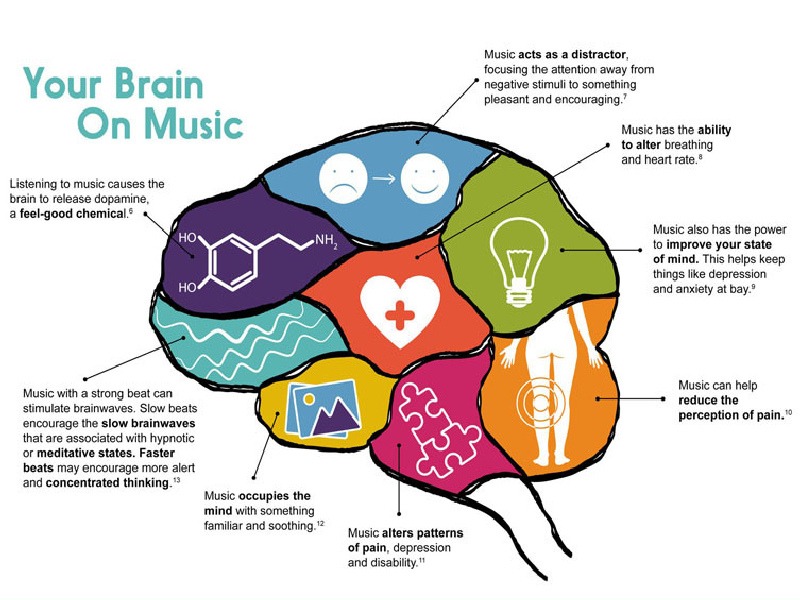How Does Music Affect Your Mood?
You’re about to start your workout, and you reach for something upbeat with a fast tempo, something to get the blood pumping. You’re in the mood for some romance, it’s time to play some schmaltzy ballads. If you’re feeling lonely, time to bring out the heartbreak collection. Have you ever noticed how music can enhance our emotions, and allow us to really revel in them?
Why does music affect us the way it does? Well, it’s actually several different things working in tandem.
That’s So Dope:
Listening to our favorite songs, no matter what genre or key, gives us a little dopamine kick. Dopamine is a neurotransmitter, a little reward the brain gives you for doing something that you derive pleasure from.
Listening to music you know and love can have a great effect on your mood, regardless of the genre or type. However, studies show even new music you’ve never heard before can affect your mood in a positive way.
The Power OF Positive Thinking:
The law of attraction and self-help gurus have been telling us for ages that setting the intent for something, and positive thinking is the first step in achieving your goals. A positive outlook is also said to improve your mood and overall well-being.
Did you know there is also such a thing as positive listening? Studies have shown that listening to happy, upbeat music with the intention of feeling good can lift the gloomy clouds and make everything A-okay!

Keeping The Beat:
If just listening to wonderful music can have such a great effect on the brain and your mood, can you imagine what playing it would do? Well, you don’t have to imagine for much longer, because we’re here to tell you!
Playing an instrument not only improves eye-hand coordination and the dexterity in your fingers, it also has a great impact on your memory and ability to retain information.
Playing an instrument essentially changes the way your brain stores information, there are physical and neural changes that scientists are conducting research on. The benefits of these changes can transfer to other areas, such as speech, emotion, and auditory processing.
Heal Thyself:
Music is also widely accepted as a non-invasive form of therapy to help reduce stress, anxiety, fatigue, and depression among patients of varying ages.
According to one study, when a hospital had soothing music playing in the surgical ward, the patients required less anesthesia and pain medication. An Oncology nurse swears by it, claiming that the benefits of music for the patients are easy to see.
Best Years Of Our Lives:
There are certain songs that we connect with. The lyrics we know by heart, the opening riff that can send us on a trip down memory lane. Those are the songs that give us the biggest dopamine kick because through them we reminisce about the best years of our lives, the formative years.
Studies have shown that the music that we loved in those years, roughly from 12 to 22, (The time when our musical palate needed considerable refinement, a cruel joke that nature played on us) has a special connection with our brain, one that doesn’t fade with age. That is when “the sparks that music lights up in our brains, turn into a fireworks show”, the music we will forever compare everything else to, and find it all inferior.
The right kind of music heightens and enhances whatever emotion we feel in the moment, be it love, euphoria, heartbreak, anguish, or anger. Keep these points in mind, the next time you put on your favorite playlist, so you can get more out of your music.
And, as the Bard said ‘If music be the food of love, play on”
Post a comment